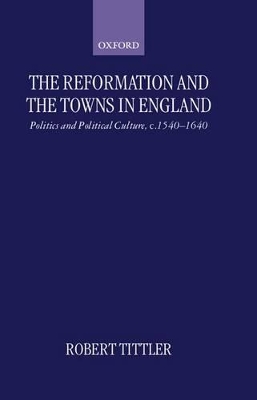This analysis of the secular impact of the Reformation examines the changes within English towns over the period c.1540-1640. All over England wholesale shifts of urban land and resources, coupled with increased statutory responsibilities, allowed a surprising number of towns to strengthen their financial and political positions. The Reformation had already begun to destroy much of the doctrine-based political culture which traditionally sustained provincial
governments. As a result, the ruling elites in many towns not only extended their holdings and acquired greater autonomy; they also gained much greater institutional authority over their inhabitants - part of a growing movement away from communal values towards rule by oligarchy. These elites sought to
legitimize their new authority by various means: civic portraiture and regalia, the building of town-halls, the writing of local histories, and the creation of new forms of worship. An altered civic ethos emerged, marking a significant new phase in urban history.
- ISBN10 0198207182
- ISBN13 9780198207184
- Publish Date 11 June 1998
- Publish Status Active
- Publish Country GB
- Publisher Oxford University Press
- Imprint Clarendon Press
- Format Hardcover
- Pages 408
- Language English
